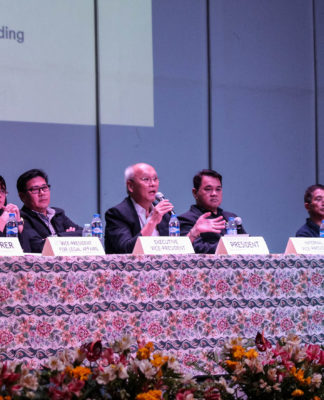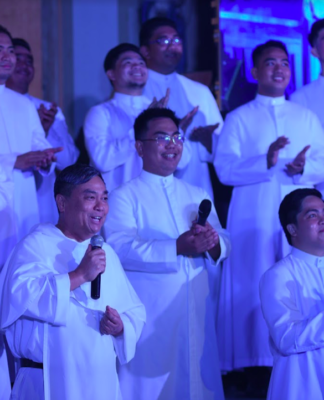The more things change, the more they remain the same. Such adage, however hackneyed, should prove timely in the aftermath of the May 13 mid-term polls, which have been trumpeted by the administration and Commission on Elections (Comelec) officials as a triumph of democracy, but which have merely reinforced the worst aspects of our political system, its penchant for dynastic politics, nepotism and self-serving cynicism. In short, our political system is nothing but a criminal syndicate, no more, no less.
Research by the Philippine Center for Investigative Journalism (PCIJ) showed that 256 election winners have graft and crime cases—222 of them are re-electionist—with 17 of them already convicted. In particular, 169 ran under the Aquino-led Liberal Party, while 52 ran under the Nacionalista Party of Vice President Jejomar Binay. The fact that their parties and coalitions dominate Philippine politics and governance should be a cause for alarm.
“Politicians accused of crime apparently get in and out of public office with neither effort nor dread,” the PCIJ reported. “Even those who have been convicted get to run for public posts, in contrast to the lot of dismissed government officers and personnel who are suspended or barred from public office after being found guilty of misdeeds.”
The PCIJ exposé, which was retrieved from Sandiganbayan database from 1979-2012, showed that 504 candidates in the May polls are respondents to 1,883 cases for graft and other crimes.
About nine out of 10 of the accused won in local government posts: 93 won as councilors, 83 as mayors (including eight who ran unopposed), and 48 as vice mayors (eight unopposed). Moreover, 18 were elected as district representatives, while the rest won provincial government positions: one vice governor, two governors and 11 provincial board members, PCIJ report said.
Notably, two candidates have been accused of plunder and became chief executive: former president Gloria Macapagal-Arroyo, who won second term as a Pampanga district representative; and her successor Joseph Ejercito Estrada, who lost in the 2010 presidential election but has won the mayoral post of Manila, the nation’s capital.
“At least one winning candidate each had also been sued for unlawful appointment, illegal use of an alias, malicious mischief, altering of boundaries or landmarks, and prohibition, interruption, and dissolution of peaceful meetings,” the report said.
Comelec Commissioner Robert Lim admitted to PCIJ that Comelec “cannot compel candidates to declare in their COCs whether they are facing criminal charges, unless the Omnibus Election Code is amended.”
“[Comelec] has no way of checking criminal charges and/or records because the certificate of candidacy is the only document required by law that must be submitted by any person who intends to run for public office,” Lim said.
The Omnibus Election Code simply requires the candidate’s details in the certificate of candidacy: name, nickname, gender, age, birthday, birthplace, political party, residence, civil status, profession, period of residence in the Philippines before the day of the election, and the place where he or she is a registered voter.
The Omnibus Election Code should therefore be revised. Moreover, judicial hearings should be expedited. Hearings are tedious and slow-paced, making criminal cases gather dust for years, allowing politicians with cases to continue thriving in elections year in, year out.
In the final analysis, the dross of cynical politics has simply overwhelmed the body politic that it’s almost a daunting enterprise to purify Philippine democracy. At the least, we should stop heralding our alleged growth as a democracy. We simply have not grown in democratic grace; our politics simply has grown more shameless.














